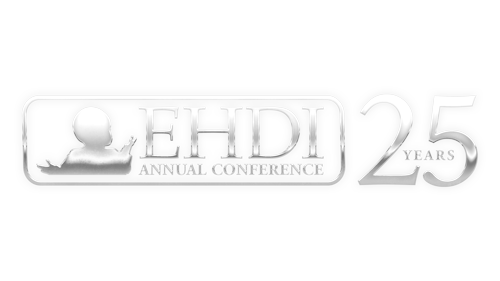2026 Early Hearing Detection & Intervention Conference
March 15-17, 2026 • Jacksonville, FL
| Models to Facilitate Culturally Responsive Patient and Family Center Care within Audiology Practices
Models to Facilitate Culturally Responsive Patient and Family Center Care within Audiology Practices
As audiologists, some of our most important work is centered around patient and family centered care. There are many subsets and models that a provider can implement to provide effective patient/family centered care and accommodate to patients' needs, such as: neurodiverse care, trauma informed care, and the Patients/Families as Hosts model.
Neurodiverse care or neurodiversity affirming care is the act of providing safe and effective care to patients who are neurodiverse. Neurodiversity is an umbrella term that emphasizes the spectrum of differences with which an individual’s brain can function. There are many ways a provider can implement neurodiverse care, such as, reducing sensory stimuli (e.g., dimming overhead lights), using clear and concise communication, practicing active listening, and acknowledging that all behavior is communication.
Trauma informed care is the act of accounting for a patient’s life as a whole to provide appropriate and effective care. A provider can implement trauma informed care into their practice by knowing the signs and symptoms of trauma, understanding the impact of trauma, implementing knowledge of trauma into workplace trainings, and by providing a safe and empathetic area where patients who have experienced trauma can feel empowered.
The Patients as Hosts/Families as Hosts model is a model of patient/family centered care that was developed by Dr. Mirian Ofonedu of Kennedy Krieger. Through this model of care, she highlights that patients/families invite you into their lives and offer to host you as a provider. She details how important it is to acknowledge that we, as providers, are guests in their lives.
A primary objective of this literature review is to establish understanding of the importance of patient/family centered care within audiology practices. Ideal learner outcomes include increased understanding of patient/family centered care and their subsets, as well as practice models of how to implement effective patient/family centered care.
- Understanding the importance of patient and family centered care within audiology.
- Knowing different subsets of patient and family centered care (neurodiverse care and trauma informed care) and when to apply these to your practice.
- Understanding the “Patients/Families as Hosts” model, and how this could improve your practice.
Presentation:
3478265_16517KathryneKnepp.pdf
Handouts:
Handout is not Available
Transcripts:
CART transcripts are NOT YET available, but will be posted shortly after the conference
Presenters/Authors
Kathryne Knepp
(Primary Presenter), kneppk@kennedykrieger.org;
Kathryne Knepp is the current 4th year Audiology Extern at the Kennedy Krieger Institute. Kathryne received her Bachelor of Science degree in psychology from Central Michigan University in 2016. She is also a current graduate student of Western Michigan University's Clinical Doctorate of Audiology Program. After graduation, she would like to pursue a career in pediatric audiology.
ASHA DISCLOSURE:
Financial -
Nonfinancial -
AAA DISCLOSURE:
Financial -
Nonfinancial -
Holly Duncan
(Co-Presenter), kennedy krieger institute, duncanh@kennedykrieger.org;
Holly Duncan is a pediatric audiologist and preceptor at Kennedy Krieger Institute in Baltimore, MD. She has been a pediatric audiologist for 7.5 years. Holly is a 2014 audiology graduate of Gallaudet University. In addition, Holly has a bachelors degree in Deaf/Hard of Hearing Education and Elementary Education.
ASHA DISCLOSURE:
Financial -
Nonfinancial -
AAA DISCLOSURE:
Financial -
Nonfinancial -
Sarah Ellis
(Co-Presenter), Albert Einstein College of Medicine , ellissa@kennedykrieger.org;
Sarah Ellis is a pediatric audiologist and preceptor for audiology trainees at the Kennedy Krieger Institute in Baltimore, MD. She is a graduate of the Au.D. program at the University of North Carolina at Chapel Hill.
ASHA DISCLOSURE:
Financial -
Nonfinancial -
AAA DISCLOSURE:
Financial -
Nonfinancial -
Amy Gaskin
(Co-Presenter), Kennedy Krieger Institute, Gaskin@kennedykrieger.org;
Amy is the Director of Audiology at the Kennedy Krieger Institute. She has worked as a pediatric audiologist for over 20 years. She received a B.S. in Hearing and Speech Science from Towson University and an M.A. in Audiology at the University of Maryland. She also received an Au.D. from Arizona School for Health Sciences.
ASHA DISCLOSURE:
Financial -
Nonfinancial -
AAA DISCLOSURE:
Financial -
Nonfinancial -
